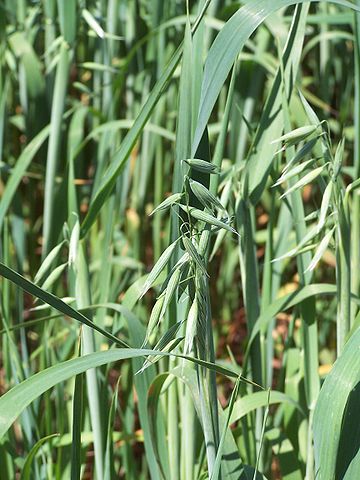POSEIDON AND DEMETER: HAPPY COUPLE, OR VIOLATOR AND VICTIM?
By Alvesgaspar - Own work, CC BY-SA 4.0, https://commons.wikimedia.org/w/index.php?curid=43569142 |
Although the above sculpture depicts the rape of Demeter’s beloved daughter, Persephone, or Proserpina, by Hades, God of the Underworld, in the myths of the ancient world there was another, earlier rape: that of the earth goddess, Demeter, herself. In Demeter’s case, the rapist was the god of earthquakes, water, and horses, as well as the Underworld: Poseidon. I chose to use Bernini’s The Rape of Proserpine as the illustration of this post because I felt it vividly depicted the shock and horror of this ancient outrage.
The two stories might have been a “twinning”, i.e.: Persephone’s later rape by Hades may just possibly have been a retelling of the original violation of Demeter by Poseidon. Here’s the initial story:
When Demeter was wandering in search of her daughter [Persephone], she was followed, it is said, by Poseidon, who lusted after her. So, she turned, the story runs, into a mare, and grazed with the mares of Onkios (Oncius) [in Arkadia (Arcadia)]; realising [sic] that he was outwitted, Poseidon changed into a stallion and enjoyed Demeter. At first, they say, Demeter was angry at what had happened, but later on she laid aside her wrath and wished to bathe in the Ladon… Demeter, they say, had by Poseidon a daughter [Despoine (Despoena)], whose name they are not wont to divulge to the uninitiated, and a horse called Areion (Arion).
This story associates Demeter with both horses and Arcadia. But it begs the questions: Was Demeter associated, any earlier than this tale, with horses? Who were the Arcadians? What gods did they worship? And did the worship of Demeter, or some archaic form of an earth goddess, have a place amongst them? We’ll get into those questions in more detail later; but for now, suffice it to say that this early AD legend serves to connect Demeter with horses and Arcadia.
Other versions of this myth say that Demeter was so outraged by the rape that she became Demeter Erinyes, the Fury, and that this, and not the abduction of her daughter, was the trigger that caused her to retreat to a cave, dressed like a prehistoric Johnny Cash, all in black, and seething at the outrage committed on her person. That seclusion, they say, is the event which annually brings the onset of winter upon the world. Other myths couple the two, saying that both rapes caused Demeter to fall into a depression.
So long as she is Black Demeter and her daughter remains – and reigns – beneath the earth as Queen of the Underworld, the upper world sleeps in silence, darkness, and cold, i.e.: winter.
I realized I knew nothing about Onkios, or Oncius, so I did a quick Wikipedia on him. (Cheating, I know, but I was in a hurry). It seems Oncius was a son of Apollo and king of a now little-known area of Arcadia. Oncius had a beautiful herd, the same horse herd amongst which Demeter so unsuccessfully hid herself. The king kept one of her children – the horse, Arion – and later gave him to Heracles to use in one of his interminable military campaigns.
The gist of this tangent is this: There they are again: horses and Arcadia. Linked both to one another and to Demeter, the Earth Mother. Exactly what are we looking at here? Well, let’s see… Further connections…
Demeter’s bath in the River Ladon represents a ritual purification. This Greek “mikvah” may have been adopted and adapted in the later rites honoring Demeter and Persephone: specifically, the Eleusinian Mysteries and the Thesmophoria. But since these rites were “mysteries”, we don’t know for sure all that transpired. Demeter must not have travelled far from Oncius’ lands, though, for the River Ladon is also in Arcadia.
Poseidon is well-known as the god of water, but he is less renowned in modern times as the god of horses. His watery chariot is sometimes depicted as being drawn by a team of seahorses. In this myth, he is shown shapeshifting into a stallion to pursue the “object of his affections.” (Perhaps, changing into a female horse to escape the god of the equine was a lapse in judgement on Demeter’s part)? Or else, this story is an ancient metaphor, a parable representing something else, less literal than a rape.
Also, unless Despoine and Arion were twins, it would appear that Demeter and Poseidon had sex on more than one occasion. A second rape is never reported by the ancient media, so it seems safe to assume that the two were twins borne of the same rape. More on them later.
In her book, On the Trail of the Women Warriors, Lyn Webster Wilde quotes Robert Graves as saying that this story of ancient ravaging, “where the goddess turns herself into a mare to escape the god, records a Hellenic invasion of Arcadia”. If this is so, who were the Hellenes? Ancient Greeks? Mycenaeans? Or Proto-Greeks?
Where was Arcadia, and what did it have to do with the Amazons? Or more to the immediate point: Who was the goddess, Demeter, in the pre-Greek, olden days? And, what if anything, did she have to do with Arcadia and the Amazons?
BIBLIOGRAPHY:
Bernini, Gian Lorenzo. The Rape of Proserpine. https://creativecommons.org/licenses/by-sa/4.0/deed.en
Pausanias, Unknown. “PAUSANIAS 8. 36 - 54.” PAUSANIAS, DESCRIPTION OF GREECE 8.36-54 - Theoi Classical Texts Library, 2017, www.theoi.com/Text/Pausanias8C.html#8.
Unknown, Unknown. “Oncius.” Wikipedia, Wikimedia Foundation, 26 Nov. 2018, en.wikipedia.org/wiki/Oncius.
Wilde, Lyn Webster. On the Trail of the Women Warriors: the Amazons in Myth and History. Thomas Dunne Books, 2000.


Comments
Post a Comment